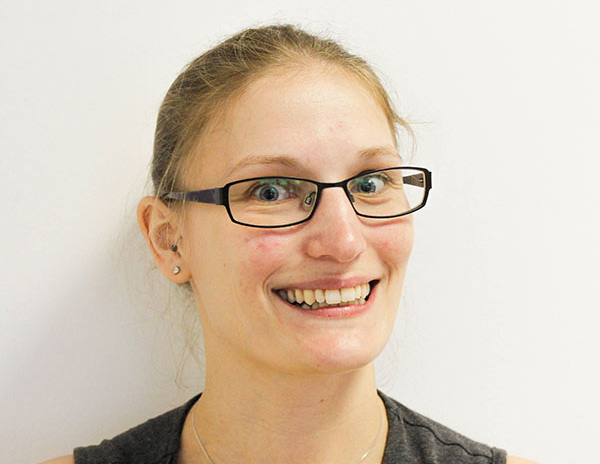Specialist teaching of SEMH supports the learning of individuals who have SEMH needs through teaching useful strategies, such as; social skills, emotional wellbeing, and mental health. SEMH needs may manifest through challenging behaviour or low mood. Our specialist teachers maximise the potential of children and young people by working with them to overcome their barriers to learning, and through advising education staff on how best to support identified individuals.
Social, emotional and mental health difficulties
Children and young people may experience a wide range of social and emotional difficulties which manifest themselves in many ways. These may include becoming withdrawn or isolated, as well as displaying challenging, disruptive or disturbing behaviour. These behaviours may reflect underlying mental health difficulties such as anxiety or depression, self-harming, substance misuse, eating disorders or physical symptoms that are medically unexplained. Other children and young people may have disorders such as attention deficit disorder, attention deficit hyperactive disorder or attachment disorder.
SEND code of practice (2015)
Our specialist teachers offer the following services in relation to SEMH:
Services are bespoke according to needs and requirements, so if a service is required which is not listed above then please contact us by emailing office@ehp.org.uk.
Where a child continues to make less than expected progress, despite evidence-based support and interventions that are matched to the child's area of need, practitioners should consider involving appropriate specialists, for example, health visitors, speech and language therapists, Portage workers, educational psychologists or specialist teachers, who may be able to identify effective strategies, equipment, programmes or other interventions to enable the child to make progress towards the desired learning and development outcomes.
SEND code of practice (2015)
Our specialist SEMH teachers provide individual interventions and group work to support a variety of SEMH needs. Common interventions and groups include:
The above list is not exhaustive as there are many set interventions and groups available, in addition to bespoke support designed according to identified needs.
Our specialist services can be accessed by education, health and other professions working with children and young people.
Poor mental health undermines educational attainment. Surveys suggest that disproportionately large numbers of pupils with conduct and emotional disorders fall behind in their overall educational attainment, missing school and/or being excluded.
Mental health and behaviour in schools (2016)
Our specialist SEMH teachers provide consultancy to suit the needs of individuals, groups and education settings. Examples of the consultancy we provide include:
We take a whole school approach to promote sustainable and positive change in relation to SEMH in education settings. Whole school approaches can maximise the impact of interventions and teaching. Our SEMH specialist teachers provide a variety of whole school approaches according to the requirements of the education setting. To talk to a member of our team about SEMH consultancy needs then please get in touch now.
The National Institute for Health and Care Excellence (NICE) advises that primary schools and secondary schools should be supported to adopt a comprehensive, 'whole school' approach to promoting the social and emotional wellbeing of children and young people. Such an approach moves beyond learning and teaching to pervade all aspects of the life of a school, and has been found to be effective in bringing about and sustaining health benefits.
DfE also identifies a whole-school approach to promoting good mental health as a protective factor for child and adolescent mental health.
Promoting children and young people's emotional health and wellbeing: A whole school and college approach (2015)
Our SEMH specialist teachers offer training on a broad range of aspects related to SEMH within education settings. Examples of training we provide are:
Bespoke training is provided in order to offer relevant training to education settings and their staff, children and young people. We regularly run external CPD events throughout the year on a broad range of topics.
Our training is available on and off site for education settings and organisations in relation to health, psychology and education.
We work with children and young people who have been identified as having SEMH needs, or are suspected to have SEMH needs. Examples of behaviour which may indicate SEMH needs include:
SEMH needs can be displayed in a variety of ways and if you suspect that an individual may be experiencing SEMH difficulties then it is important to act fast to reduce the impact of the needs on a child or young person.



There are many benefits of using our specialist SEMH teachers as they:
Input from our specialist SEMH teachers can lead to long-lasting sustainable benefits to education settings.
Our services can be funded through a variety of ways.
Our SEMH specialist teaching services support children, young people and education settings. SEMH interventions are more effective when put in place within the context of a whole school approach. As many children and young people face emotional wellbeing and mental health challenges it is important to appropriately identify and address these needs.
Our specialist multidisciplinary services can be commissioned through a service level agreement and as standalone input.
If you would like to find out more about the services we offer or to book a free initial discussion then please contact us on email office@ehp.org.uk
EHP © Copyright 2026. ALL Rights Reserved.
Part of Tx Group

At EHP we thrive on feedback. We're happy to hear that this page has been helpful to you, would you like to leave some feedback?
At EHP we thrive on feedback. We're sorry to hear that this page wasn't what you where looking for, how can we improve this service?
At EHP we thrive on feedback. We're sorry to hear that there was something on the page you found unsatisfactory, how can we improve this?




